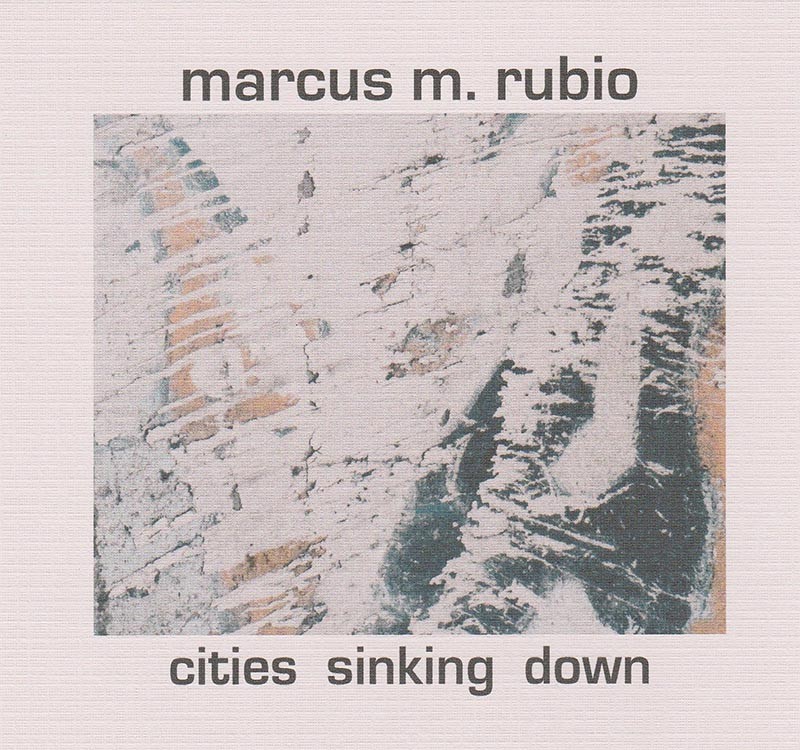It's been a prolific year for experimental savant Marcus Rubio. Amid a sea of split releases and 45-minute singles, the SA native released his fifth effort of 2014 in December with Cities Sinking Down. Like his best work, the album draws the pop form into an alchemist's kitchen of loops and effects, where Rubio happily butchers the material until there's no recall of the original.
Cities Sinking Down began with a spark of inspiration from Japanese field recorder Toshiya Tsunoda. The Yokohama artist takes field recordings of ambient sound and examines the odd and incidental noises documented in the process.
"He was doing it with abstract sound and I was interested in doing it with pop music," says Rubio.
But where Tsunoda allows time to be the active agent of change, Rubio submits his folk pop tunes to a hurried cycle of decay, carving at his compositions with looping pedals. The opening cut "American Diseases" begins on a standard bluegrass feel, which is soon dissected into short record scratch rhythms. When his voice comes in, Rubio's endemic images get the cut-up treatment as well, with partial looped phrases ringing like alarms. The panned sounds dart back and forth between speakers as the layered loops tap new and sometimes impossible rhythms.
"It's like a magnifying glass on these particular songs," says Rubio. "You start getting these very small grains of the sample and you start hearing these micro-sound things you wouldn't hear otherwise. The looping process brings it out, and through repetition, you start to hear this thing as a much stranger distinct sound. It's used as a way to propel songs and disrupt them at the same time."
Though the looping process zooms in for unexpected clarity, it can also cloud the recording into a schizoid blur. On "Jung Dad (Springer's Progress)," the loops pulse at an arrhythmic and alien pace before Rubio opens up with a fitful Elliot Smith number. "It kind of magnifies," says Rubio, "but it also abstracts because nothing here is processed other than being looped. So as things are being magnified, it's to the point that you don't recognize what it is anymore."&
But before any of this loop pedal dickery, there is Rubio's unfettered and wordy pop. "New Inquisitions" finds Rubio on a pounding rhythm, with string instruments going up in conflagration around the melody. Before the loop pedal takes over and hacks the thing to bits, he waxes paranoid and chokes on "unfettered compromise."
Cities Sinking Down borrows its name from an unrecorded tune by Rubio and his Gospel Choir of Pillows, the band he ran in SA before opportunities took him to LA and Austin. In its language, the album treats the cultural push and pull of the cities Rubio has lived in, as they deal with resident cultures clashing with new money and entrenched problems. "It has to do with certain cultures getting abstracted and co-opted in these other ways," says Rubio.
The name may be the same, but the music attached to Cities Sinking Down has changed dramatically, creating a theme of transition and change that ties the record together. "I only maintained the very core melody on the album version," says Rubio. "Even that becomes very abstracted in the process. It's very much the greatest abstraction of all, 'cause it's this thing that existed in another form, fucked with, forgotten about and fucked with more in its new incarnation."

















